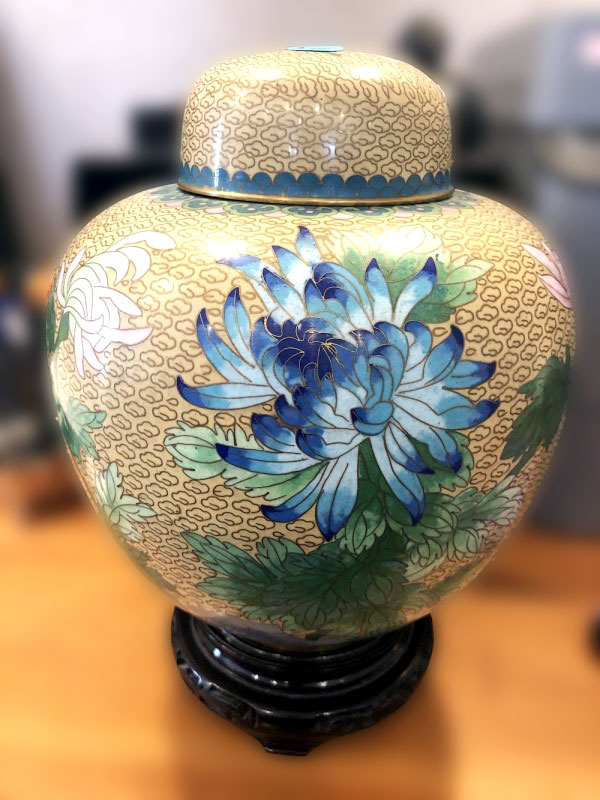Cloisonné
Cloisonné is an ancient enamelling handcraft and art. Each piece is given individual attention and is unique. The word cloisonne is French. The word for cloisonne in Japanese is shippo, which means “seven treasured ware”. In Sanskrit it’s Sutha Ratha, meaning emerald, agate, crystal and pearl. The original craft was often encrusted with precious gems.
Here’s how cloisonne pieces are made:
- The foundation is copper, silver, or gold
- A design is drawn on the foundation
- Wires are affixed to the design
- Solder enamel flux is dropped in
- First baking of soldering wires
- First coating of enamels
- Second baking (melting point is 850 degrees celsius)
- Second coating of enamels
- Third baking
- Third coating of enamels
- Fourth baking – by this time the enamels are thick enough to cover all wires
- Polishing with nine different whetstones
- Finishing and trimming with silver and/or gold

